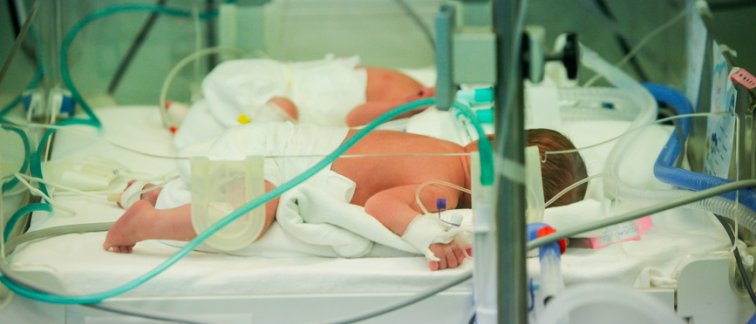Very preterm infants developing bronchopulmonary dysplasia (BPD) are at risk of neurodevelopmental impairment. The immature adrenal cortex of very preterm infants fails to mount a sufficient cortisol response for the degree of illness, and novel data suggest that also the action of cortisol is impaired in this group. Both can result in insufficient damping of pulmonary inflammation, which is considered a key pathway in the development of BPD.
Prophylactic treatment with systemic corticosteroids is effective for the prevention of BPD, but has been associated with neurodevelopmental impairment. It is generally assumed that infants at high risk of BPD may benefit from corticosteroids, whereas in low-risk infants the adverse effects of this treatment probably outweigh the beneficial effects. However, clinical prediction models for BPD lack accuracy.
We propose a novel strategy for the prediction of BPD among preterm infants born <30 weeks of gestation that includes (serial) assessment of: (1) adrenocortical output as assessed from cortisol, 17-OH progesterone and 11-deoxycortisol (in blood); (2) single-nucleotide polymorphisms in corticosteroid-responsive genes expressed during lung development (in cord blood or placenta), and (3) pulmonary inflammation as assessed by volatile organic compounds (in exhaled breath) and interleukins (in blood). In a local feasibility study (of n=50) and a multicenter prediction study (of n=375), we will test the feasibility and predictive performance of above methodology for the prediction of BPD and neurodevelopmental impairment. Such a strategy may have the potential to specifically target the prescription of corticosteroids in order to improve outcome after very preterm birth.




